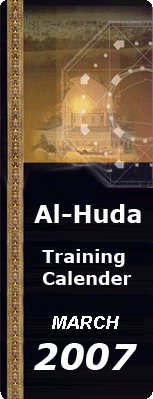| |
L Yulyadi Arnakim
Hibah is one of means to distribute one's assets in Islamic financial planning. It may be used either in one's lifetime or in estate distribution of the deceased. It is very simple, yet influential tool in estate planning in the sense it may influence the portion of some heirs if one executes the hibah when one is about to die. Hibah basically means gift as when prophet Zakariya prayed to his Lord in order to be granted descendants, saying "O my Lord! Grant unto me from thee a progeny that is pure" (Qur'an 3:38).
Hibah is an Arabic term, derived from the word 'habubah', which literally means 'passing' or 'blowing'. In the religious term it means giving one's wealth to others without the expectation of any replacement or exchange with the transferring effect on the ownership. Thus once a hibah is executed, the giver cannot take it back. Like waqf or other charity, hibah is the transfer of property from the giver to the recipient during his lifetime. However hibah in general sense may include Ibra', sadaqa and hadiyah which respectively means release from; releasing one's wealth from his ownership, alms giving; giving part of his wealth to needy, and reward which needs an exchange.
In Islam, the habit of giving and charity has been recommended as Bukhari reported that the prophet peace be upon him says, "Give each other and love each other". Thus it is clear that hibah first of all, is recommended to be given to those whom we love and those who are nearer to us. In this regard, God has arranged the most appropriate recipients of hibah as He says "…and do good to parent, kinfolk, orphan, those in need, neighbors who are near, neighbor who are strangers, the companion by your side, the wayfarer (ye meet), and what your right hand possess: For God loveth not the arrogant, the vainglorious" (Qur'an 4:36).
Hibah is basically recommended among the family first then nearest among the neighbors and so forth. This is evident when Aishah, the wife of the prophet, wished to give one of her two neighbors a gift and asked his advice, he replied, "Give to the one whose door is nearer to you". However it does not means one cannot give a gift to those who are not near and not close to him. One of the reasons to do so is that it will help enhancing the love and special relationship among the members of the family and neighbors, who are in the surroundings.
On the other hands, the prophet peace be upon him reprimanded those who looked down on gift. As Abu Hurayrah narrated that the prophet once said "…none of you should look down upon the gift sent by your neighbor even if it were the trotters of the goat". In this regard, the prophet did not reject any gift except when the law did not permit it as Ahmad, Abu Daud and tirmidzi narrated that prophet once said when a polytheist gave the prophet and he asked him "were you a Muslim? He said no, and the prophet said "I am prohibited to receive a gift from polytheists".
Hibah is the third dimension in estate planning structure; complementing faraid and wasiyyat (will). Hibah may come into discussion when the rule of faraid does not allow some heirs to get the right of inheritance and wasiyyat was not made on him when one is facing the death. It is known that the rules of faraid only apply to Muslims; in the case of different religions between the heirs and the deceased, the heirs will not get anything from the inheritance. Thus hibah may solve the particular circumstances by giving certain portion of his wealth to the heirs who have different religion and particular blocked heirs (heirs who are not entitled to get inheritance, being blocked by other heirs) before he passed away.
Furthermore, in the case of father who wants to give his son more than what he supposes to get in estate planning, the only choice he has is to execute hibah. If he chooses to do it under wasiyyat (will writing), the son is only entitled to one third of the estate. So if the father feels that the son is entitled to get more than a third and wants to ensure that he receive it, the only way is hibah in his lifetime. If this hibah is executed in time where he is about to die, it may be in the form of will writing (wasiyyat). Thus it recommended appointing a professional trustee to execute the hibah. Even though the hibah belongs to the recipient technically, it is trustee who will manage, maintain or dispose of it. One can put condition on the trustee that the hibah is given to the recipient only upon the death of the giver. By doing this, one not only expedites the process of distribution, as the hibah will not be subjected to the laws of faraid, the estate is protected as well. Therefore it will allow the son to legally own the property. As a result, wasiyyat and hibah are devices that we can use to provide for the distribution of our estate upon our death. |







